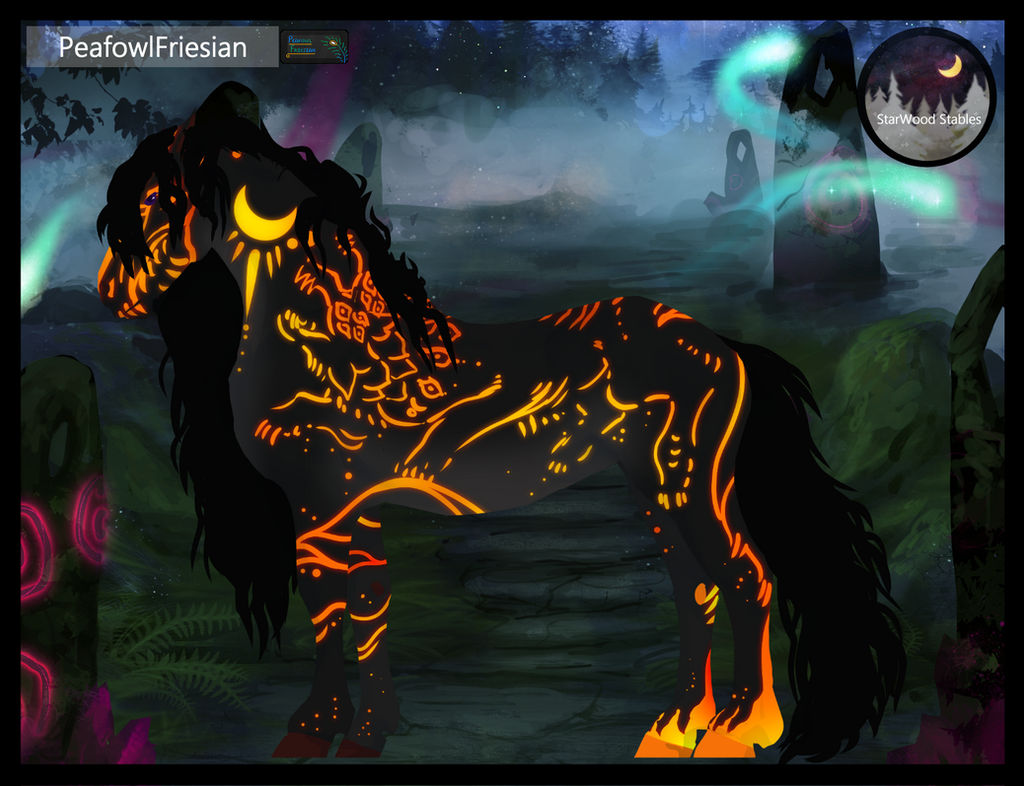
SWS Alpha Canis Minoris by foxdog2 on DeviantArt
Sirius, also known as the Dog Star, α Canis Majoris (Alpha Canis Majoris), or Canicula, is the brightest star in the night sky. It lies at a distance of 8.60 light years (2.64 parsecs) from Earth, in the constellation Canis Major, the Greater Dog.
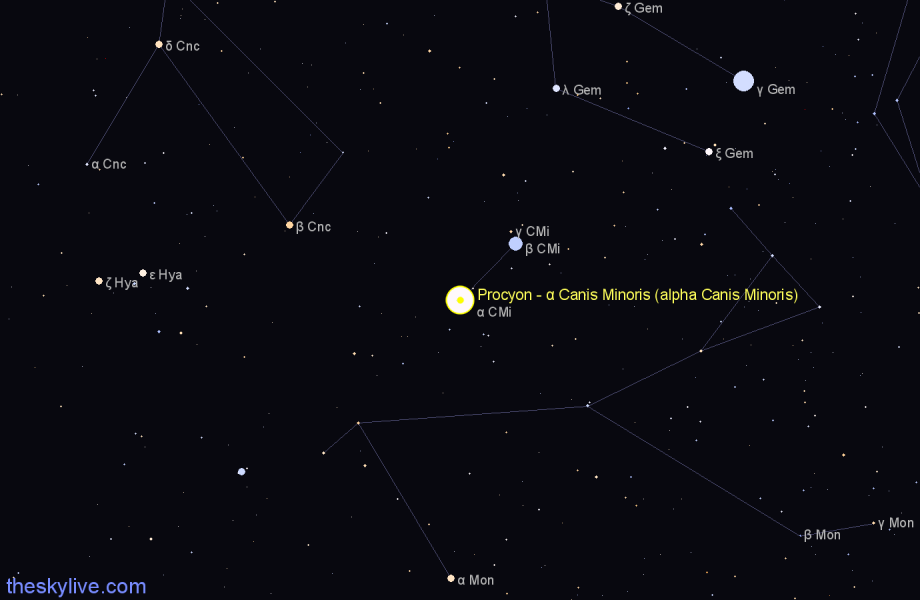
Procyon α Canis Minoris (alpha Canis Minoris) Star in Canis Minor
- Procyon (Alpha Canis Minoris) is the most luminous star in Canis Minor and the 8th brightest in the sky, with an apparent magnitude of 0.34. It is situated 11.41 light years distant, and is actually a binary system which is the 13th closest to our own sun. The system consists of the white main sequence star Procyon A, which has 1.4 solar.

Star Procyon Alpha Canis Minoris YouTube
Alpha Canis Minoris A, the Little Dog Star, is the eighth brightest star in the night sky as well as the brightest star in its constellation. Unlike the Sun, it is a white-yellow main sequence dwarf star of spectral and luminosity type F5 V-IV . This relatively large star has about 1.5 times the solar mass (Girard et al, 2000) and about 1.4 to.
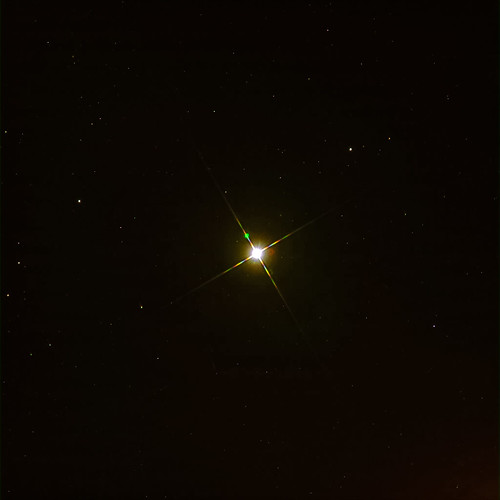
Procyon (α Canis Minoris) March 20 2006 Processed usin… Flickr
PROCYON (Alpha Canis Minoris). The eastern anchor of the Winter Triangle, Procyon is the luminary of Canis Minor, the smaller dog, and at magnitude zero (0.34) is the sky's eighth brightest star. At a distance of only 11.4 light years, it is the 14th closest star system, which largely explains its brightness.

Procyon (Alpha Canis Minoris) Star System, Constellation, Location Star Facts Star facts
Alpha2 Canis Minoris ( Procyon B) is a white dwarf companion to Procyon. It was detected by Arthur von Auswers in 1840. Although it could not be seen, its presence was suspected due to the optical.
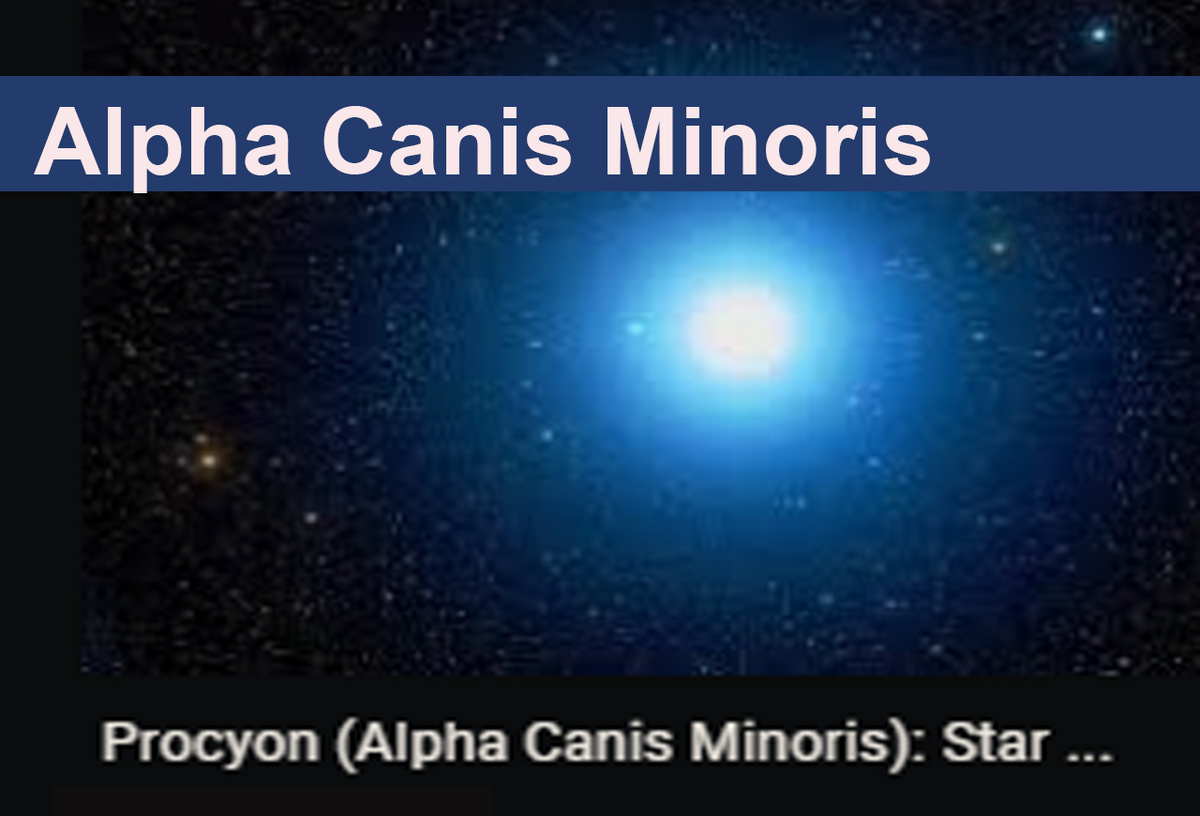
Alpha Canis Minoris Wiki Fandom
Canis Minor contains only two stars brighter than the fourth magnitude, Procyon (Alpha Canis Minoris), with a magnitude of 0.34, and Gomeisa (Beta Canis Minoris), with a magnitude of 2.9. The constellation's dimmer stars were noted by Johann Bayer, who named eight stars including Alpha and Beta, and John Flamsteed, who numbered fourteen.
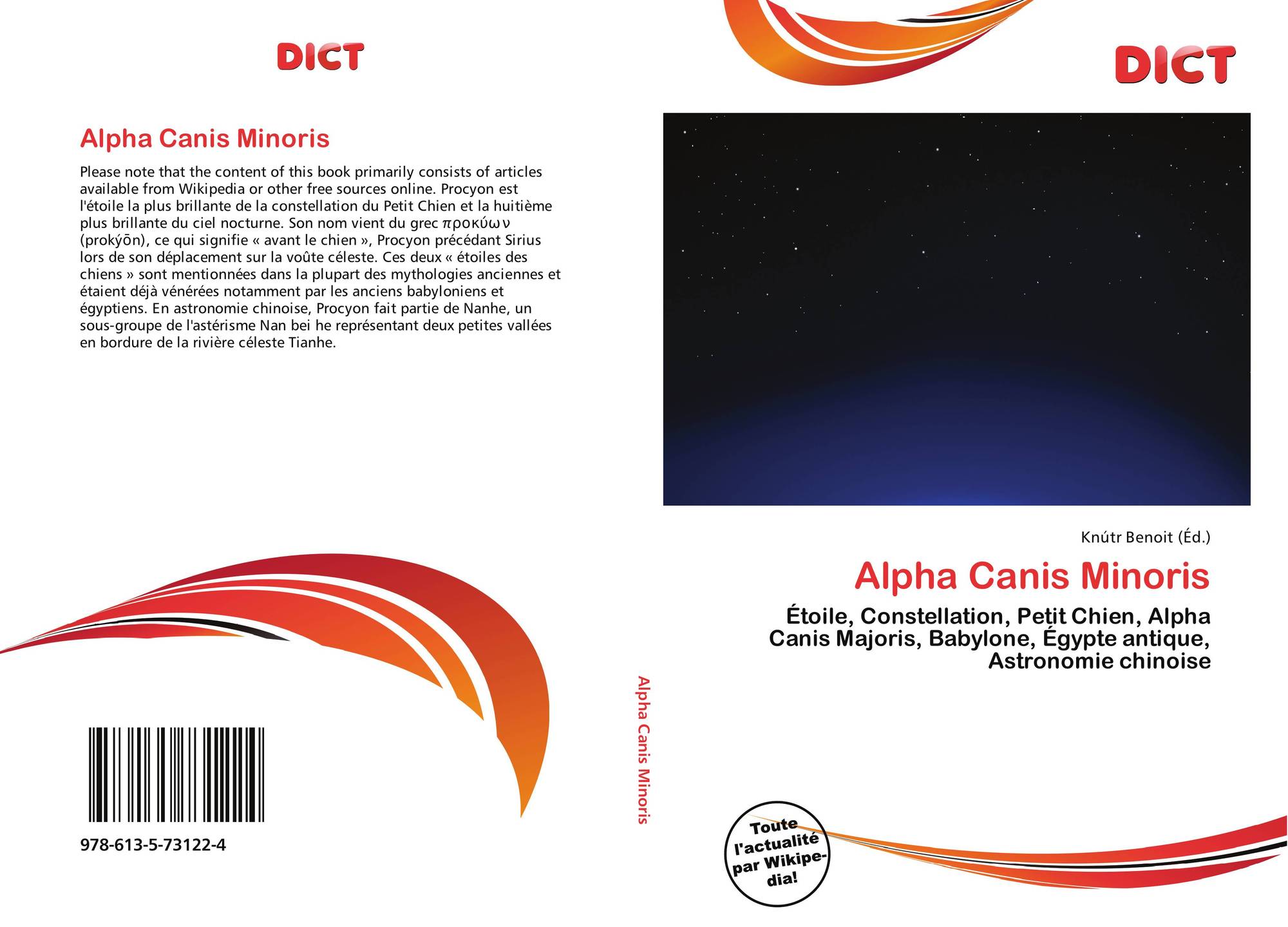
Alpha Canis Minoris, 9786135731224, 613573122X ,9786135731224
Procyon . Procyon or Alpha Canis Minoris (Alp CMi) is the brightest naked eye star in the constellation Canis Minor.With an apparent magnitude of 0.4, Procyon is the 8th brightest star in the entire sky (see: 50 Brightest Stars ).Its absolute magnitude is 2.68 and its distance is 11.4 light years.The Equinox J2000 equatorial coordinates are RA = 07h 39m 18.1s, Dec = +05° 13' 30".
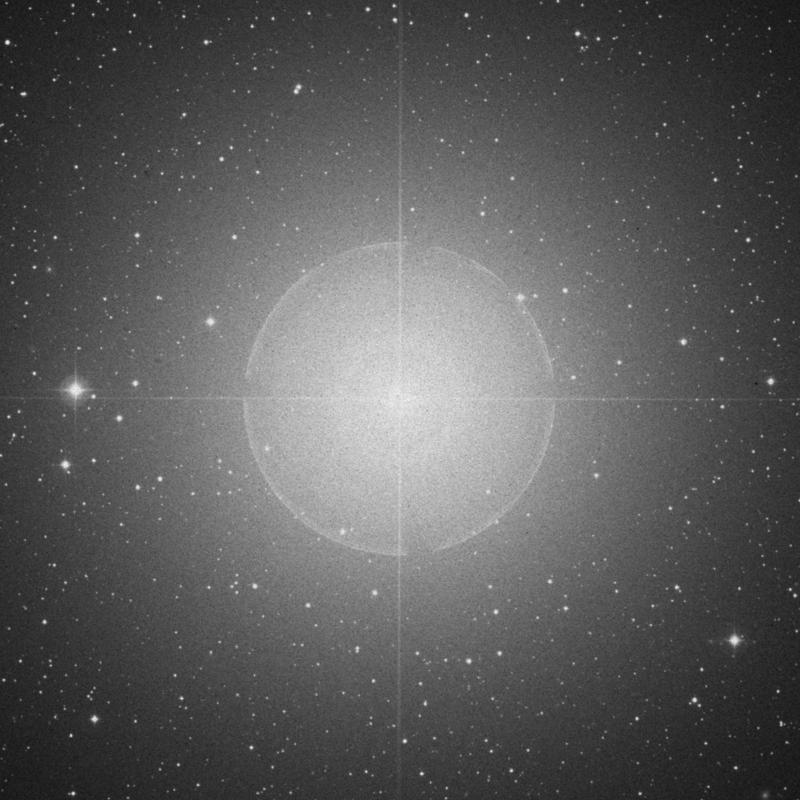
Procyon α Canis Minoris (alpha Canis Minoris) Star in Canis Minor
In the case of the Fisher Cat, Pekania pennanti, a low-slung, cat-sized fur-bearing omnivore found throughout the dense pine forests of Northern New York, apparently not much. The Fisher Cat is not a cat, but rather a member of the weasel family, and they do not fish, although there are records of them eating dead fish found on the side of.
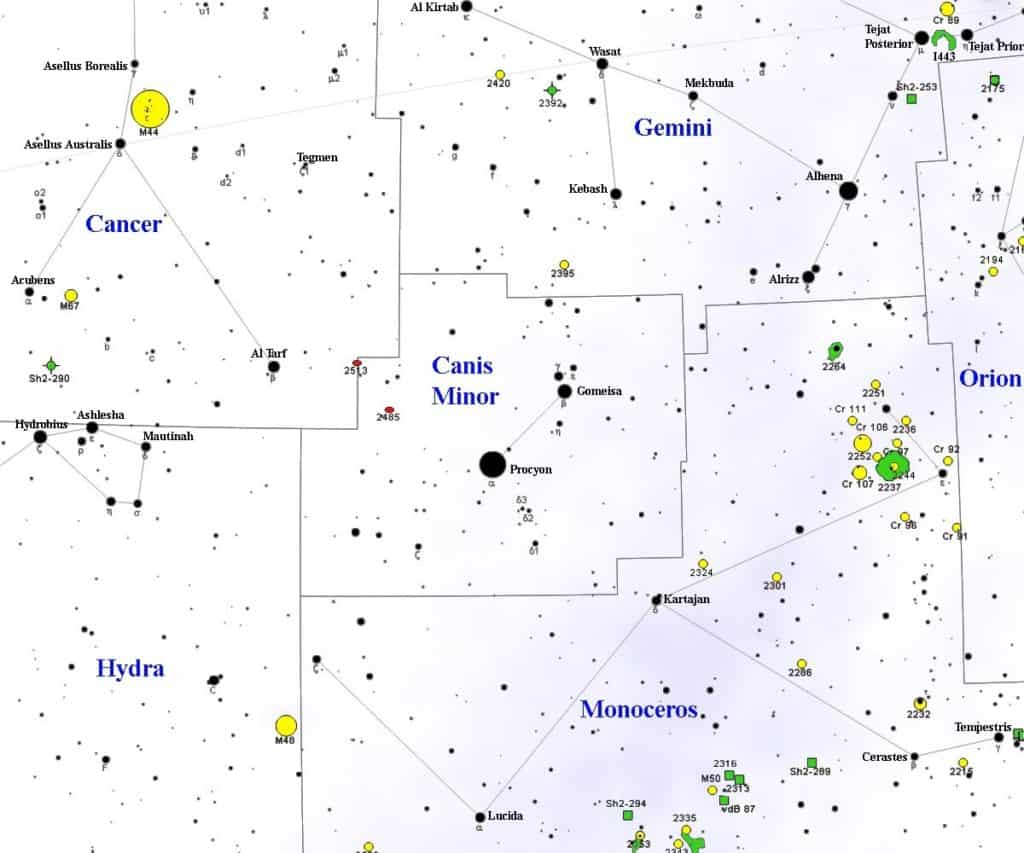
Procyon (α Canis Minoris) Facts, Information, History & Definition
Origin / Mythology As noted earlier, Canis Minor in the Greek tradition is one of Orion's two hunting dogs. The hunter and his dogs are joined in the sky by the constellation Lepus, the Hare, who is apparently leading them in the chase.
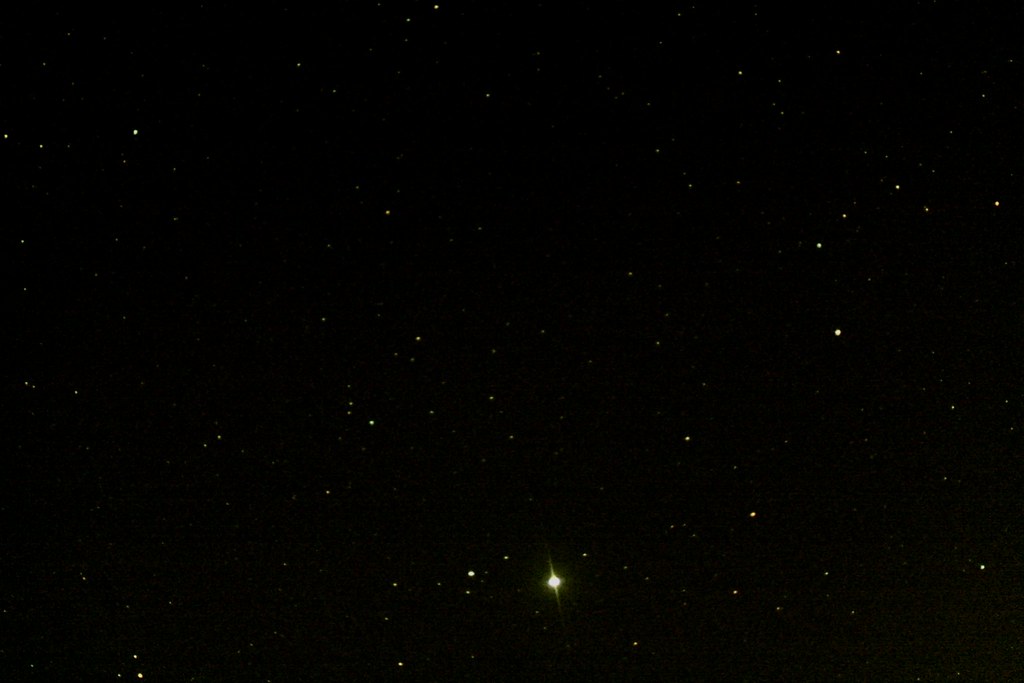
Picture 817 Procyon (Alpha Canis Minoris, HD 61421) is a m… Flickr
Procyon, also designated as Alpha Canis Minoris, is the brightest star in Canis Minor, and overall the eighth brightest star in the night sky, being 6.93 times brighter than the Sun. Procyon is a binary star system, consisting of the primary star, Procyon A, which is a white-hued main-sequence star, and Procyon B, a fainter white dwarf.
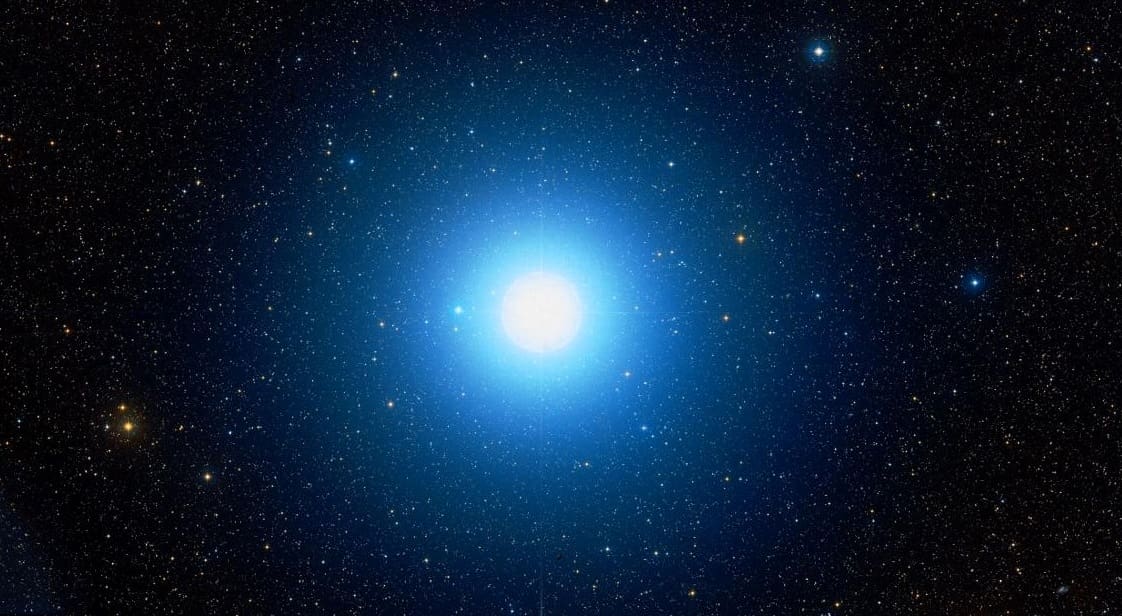
Fixed Star Procyon Astrology King
Procyon (Alpha Canis Minoris) Brightest star in the constellation of Canis Minor and one of the stars nearest to the Sun. The star, known as Procyon A, has a faint white dwarf companion, Procyon B. Characteristics: apparent mag. 0.34 (A), 10.8 (B); absolute mag. 2.6 (A), 13.1 (B); spectral type F5 (A), wF (B); distance 11.4 light-years.
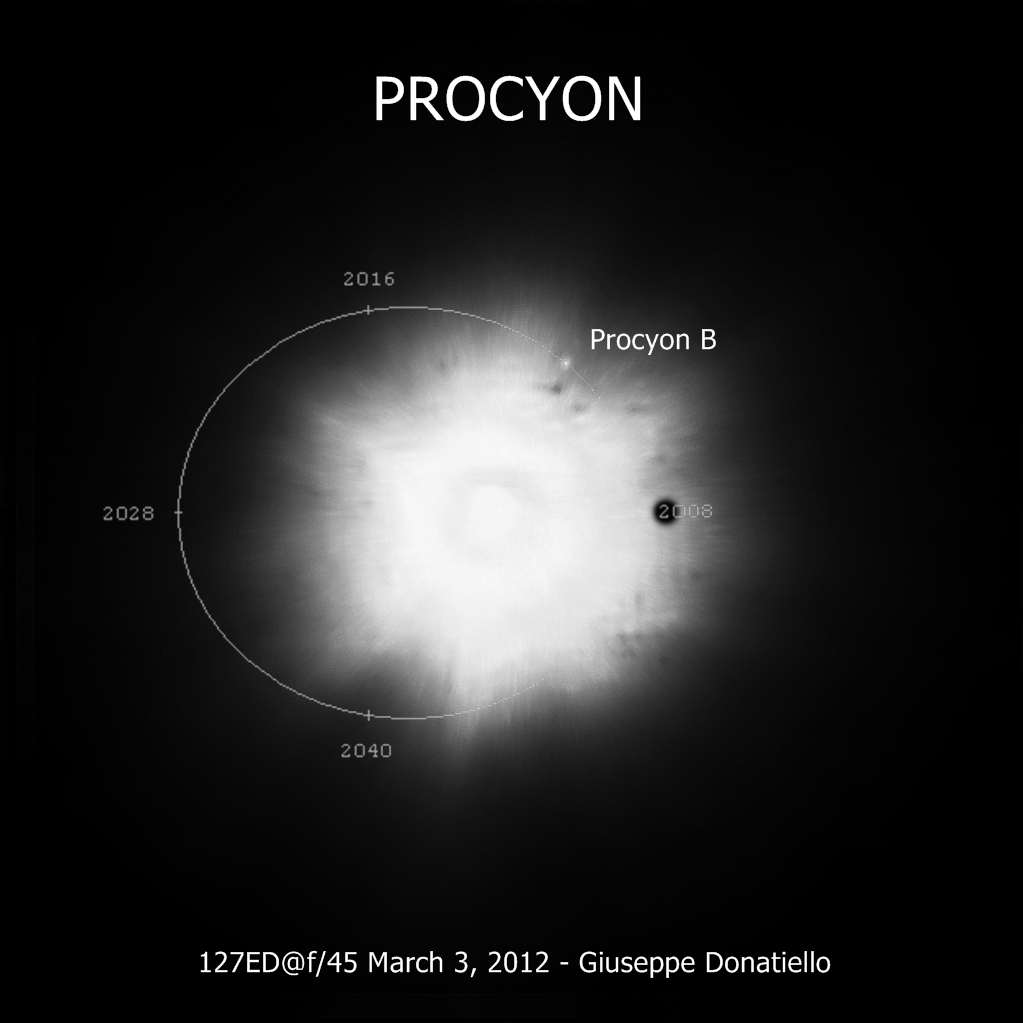
Procyon (Alpha Canis Minoris) Star System, Constellation, Location Star Facts
Meaning: Lesser Dog Genitive: Canis Minoris Abbreviation: CMi Constellation Family: Orion Hemisphere: Northern Quadrant: NQ2 Visibility: 90° N - 75° S Best viewing month*: March Area: 183 sq. degrees Size: 71st largest Equatorial: Yes Right Ascension (avg): 7h 37m Declination (avg): 6° Brightest star: Procyon (0.34)

Procyon α (Alpha) Canis Minoris 20191202 in 2023 Procyon, Canis, Reflectors
Constellations , also known as Alpha Canis Minoris spectroscopic binary star located in the constellation of Canis Minor, The Small Dog. Procyon is a major star and forms part of the constellation. Procyon is the traditional/proper name for the star, whilst Alpha Canis Minoris is the for the.

Orion's Arm Encyclopedia Galactica Procyon (Alpha Canis Minoris)
Procyon - Alpha Canis Minoris. Procyon lies only 11 1 / 2 light years away in the constellation of Canis Minor, Due to its being a spectral type F5 white main sequence star, and its nearness to Earth, it is the 8 th brightest star in the night sky at magnitude of 0.34. The name comes from ancient Greek that means "before the dog" which refers.
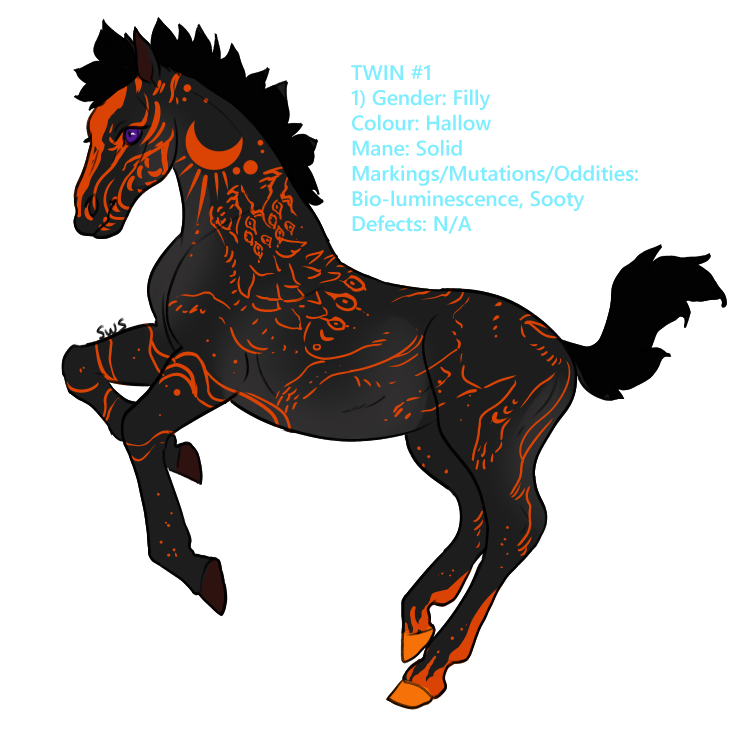
SWS Alpha Canis Minoris on Toyhouse
It has the Bayer designation α Canis Minoris, which is Latinized to Alpha Canis Minoris, and abbreviated α CMi or Alpha CMi, respectively.

α Canis Minoris 작은개자리 Προκυων Procyon, before the dog', since it precedes the dog
The brightest star in the constellation is Procyon, Alpha Canis Minoris, which is also the seventh brightest star in the sky. There is one meteor shower associated with the constellation, the Canis-Minorids. Canis Minor contains two formally named stars. The star names approved by the International Astronomical Union (IAU) are Gomeisa and Procyon.